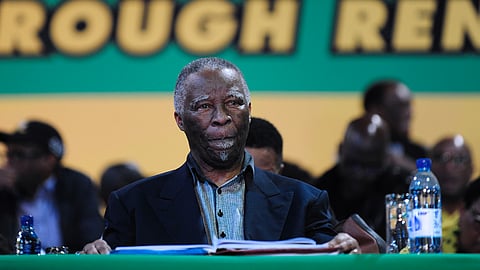RW Johnson: Obsessive Thabo Mbeki’s counter-revolution bogeyman returns
In his latest address, Thabo Mbeki delved into the last three decades, dividing them into a period of success and subsequent failure. Yet, his self-congratulatory tone belies historical inaccuracies, raising questions about his grasp of pre-ANC South African history. Mbeki's selective memory extends to recent events, conveniently omitting inconvenient truths. His fixation on a shadowy "counter-revolution" lacks substance, casting doubt on his narrative. As Mbeki plans a National Dialogue, one wonders if it's just another diversion from hard truths.
Sign up for your early morning brew of the BizNews Insider to keep you up to speed with the content that matters. The newsletter will land in your inbox at 5:30am weekdays. Register here.
By R.W. Johnson
Thabo Mbeki has re-entered the lists with a lengthy speech setting out his interpretation of the last thirty years.
___STEADY_PAYWALL___

